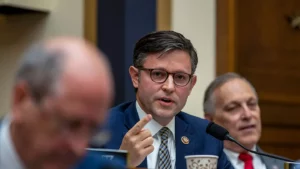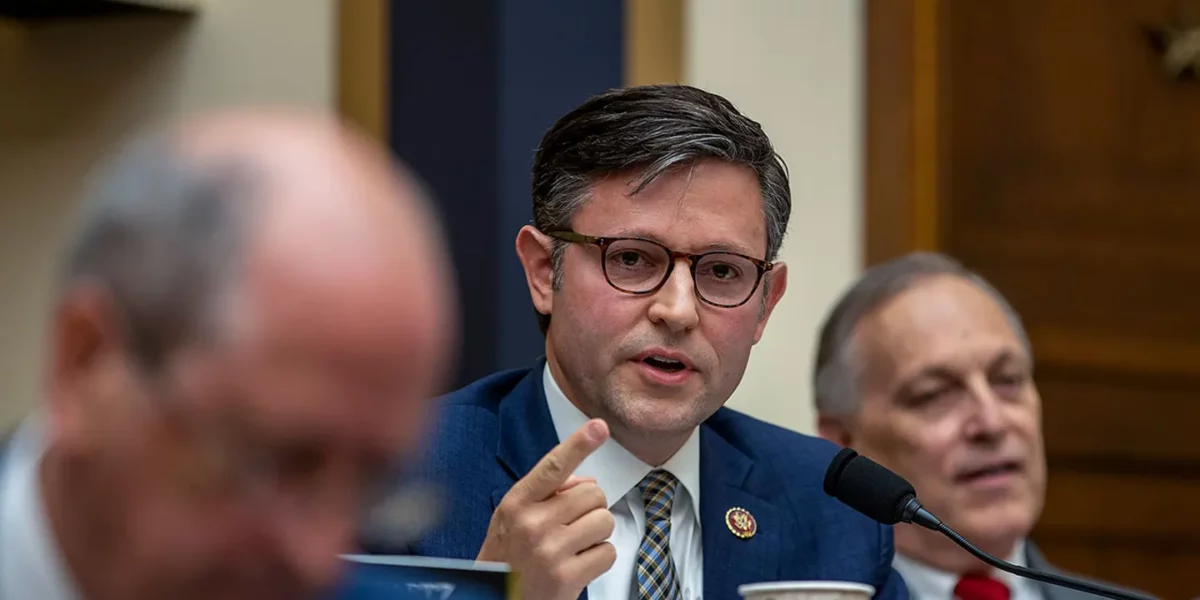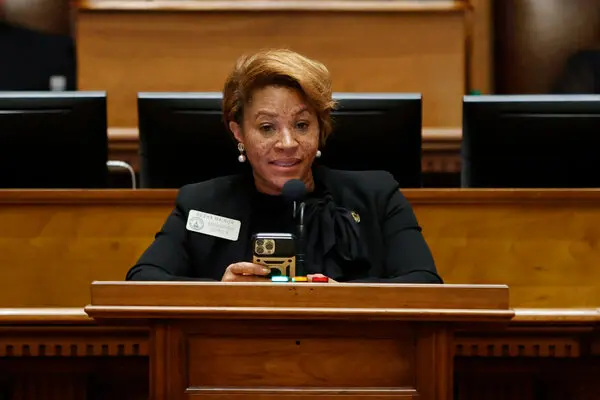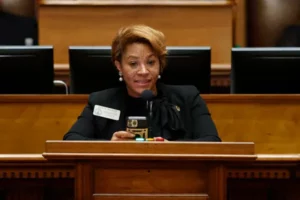
Louisiana Republican Rep. Mike Johnson was elected speaker of the House Wednesday by a vote of 220-209.
Johnson, who had been a dark horse for the position, had been voted the GOP nominee the night before after Republicans plowed through three higher-profile candidates.
The new speaker has only been in politics since 2015 when he was elected to the state House, where he stayed until 2017.
The son of a firefighter, Johnson was elected to Congress in the 2016 election and serves on the House Judiciary and Armed Services Committees.
Johnson is currently in his second term as the vice chairman of the House Republican Conference, putting him in a leadership position that largely stays out of the limelight.
The Louisiana Republican — who would be the second Pelican State speaker nominee after the failed bid from House Majority Leader Steve Scalise — previously served one term as the influential Republican Study Committee chairman.
Johnson is an ally of former President Donald Trump and defended him during the Democrat-led House impeachment hearings. He also filed an amicus brief co-signed of 100 House Republicans to support Texas litigation seeking to overturn the 2020 election results in four states: Georgia, Michigan, Pennsylvania and Wisconsin. He was the Chairman of the conservative Republican Study Committee at the time.
“President Trump called me this morning to let me know how much he appreciates the amicus brief we are filing on behalf of Members of Congress,” Johnson posted on X, formerly known as Twitter, on Dec. 9, 2020. “Indeed, ‘this is the big one!’”The lawsuit, filed by Texas Attorney General Ken Paxton, tried to buy more time with the Supreme Court to allow investigations of purported voting issues to continue before the final electoral vote in the four swing states. The Supreme Court rejected the lawsuit.
During the roll call to vacate ex-speaker Kevin McCarthy, R-Calif., earlier this month, Johnson voted against ousting him.
On several other issues, Johnson has aligned with the most conservative lawmakers in the caucus.
Last month, he voted against H.R. 5692, the Ukraine Security Assistance and Oversight Supplemental Appropriations Act, which passed. The bill appropriates federal dollars to assist Ukraine’s military in its defense against Russia and establishes an inspector general’s office to oversee aid.
Additionally, he opposed the temporary spending measure, known as a Continuing Resolution (CR), aligning with 90 other House Republicans, at the Sept. 30 deadline. He also supported measures to bolster border security within the CR, which aimed to restrict eligibility for asylum seekers. The bill did not garner enough support to pass.
In June, Johnson voted in favor of a resolution calling for the impeachment of President Joe Biden.
Prior to joining Congress, Johnson worked as a lawyer and was the senior spokesperson for the conservative Christian legal advocacy group Alliance Defending Freedom.House Majority Whip Tom Emmer’s bid for the speaker’s gavel collapsed shortly after he secured the most votes in a conference meeting, and he removed himself from the race after another vote within the chamber made it clear he lacked enough votes among Republicans to win a majority on the floor.
https://www.foxnews.com/politics/who-is-mike-johnson-republican-candidate-speaker-house





